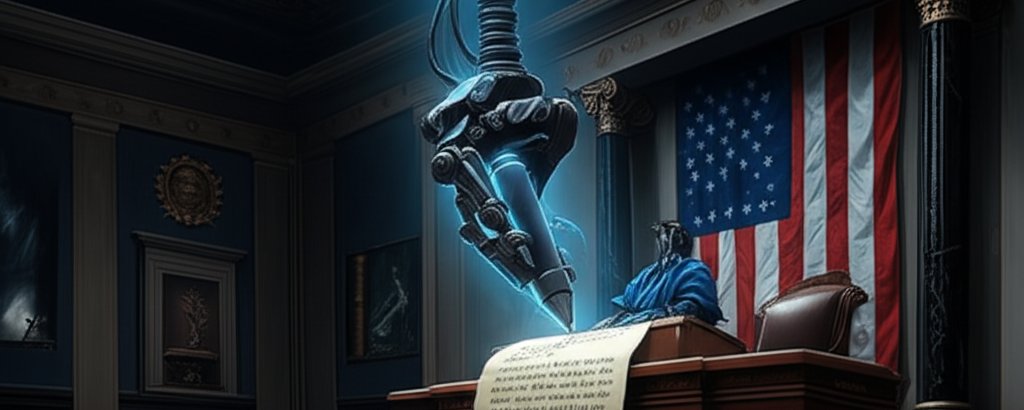The assertion that “no one has ever read an entire bill before voting on it” rings with a cynical truth that many Americans feel deep in their bones. It’s a damning indictment of a broken system. This isn’t about lofty ideals or the complexities of modern governance; it’s about a fundamental failure of duty. We demand proof of review, a guarantee that our laws are not passed by autopilot. The era of excuses is over.
By the Numbers: A Crisis of Volume and Verbiage
The sheer scale of legislation has become a convenient shield for lawmakers. But a look at the data reveals a problem that has spiraled out of control.
- The Longest Bill: The record for the longest bill ever passed goes to the Consolidated Appropriations Act of 2021. At an obscene 5,593 pages, it was a behemoth spending bill combining COVID-19 relief with a $1.4 trillion omnibus package. To expect any single human to read, comprehend, and critically analyze this mountain of text before voting is a physical and cognitive impossibility. It was signed into law by President Trump on December 27, 2020, after passing both houses of Congress with large bipartisan majorities just days earlier.
- The Shortest Bill: In stark contrast, some legislation can be very brief. In 2017, a bill was introduced in the House with a single sentence: “The Environmental Protection Agency shall terminate on December 31, 2018.” While this bill did not pass, it demonstrates that brevity can be a tool for radical change.
- The “Average” Bill – A Rising Tide of Text: The very concept of an “average” bill is misleading, but the trend is undeniable. In the 1947-48 session, the average law was just 2.5 pages. Today, that average has ballooned to nearly 18 pages. More complex legislation often exceeds 1,000 pages. The Patient Protection and Affordable Care Act (ACA) in 2010, for example, clocked in at over 2,500 pages.
There is no place for excuses. The argument that bills are too complex or that members must rely on staff summaries is a complete abdication of responsibility. We do not elect staff or AI to legislate; we elect representatives. If they cannot handle the workload, the system must change—not the standard of due diligence.
A “Present” Vote: The Coward’s Button
Voting “present” is not a principled stand; it is a legislative maneuver to avoid accountability. To claim a “conflict of interest” or to engage in “political strategy” is an insult to the electorate. A representative’s only interest is the interest of their constituents, and their strategy should be to vote “yes” or “no” on their behalf. Any conflict should be hashed out in the open, not hidden behind a procedural cop-out.
The “present” vote is the functional equivalent of admitting you haven’t done the reading. For example, during the 215–214–1 vote to pass the “One Big Beautiful Bill Act” on May 22, 2025, one representative voted “present,” effectively dodging a hard decision on a bill with massive financial implications. This practice must be eliminated.
A History of Dereliction: Five Examples of Not Reading the Bill
Finding lawmakers who openly admit to not reading bills is difficult, as it’s an admission of professional malpractice. However, the historical record and contemporary reporting are filled with instances that prove this is a multi-generational problem.
- The Great Depression – The Emergency Banking Act of 1933: In the depths of the Depression, President Franklin D. Roosevelt pushed through the Emergency Banking Act. The bill was presented to the House, which passed it with a unanimous voice vote after only 38 minutes of debate. As historian William L. Silber noted, the bill was “largely unread and barely understood.” Representatives had no printed copies to read and were told to “vote for a bill that was not yet written.” They trusted the leadership, abandoning their duty to scrutinize.
- World War II – The Lend-Lease Act of 1941: While a pivotal piece of legislation, the Lend-Lease Act was vast and its implications were not fully grasped by all who voted on it. Senator Robert Taft of Ohio, a staunch opponent, argued that it granted the President dictatorial powers and that his colleagues were voting on a blank check for war without reading the fine print that surrendered legislative authority.
- The Vietnam War – The Gulf of Tonkin Resolution of 1964: This resolution, which gave President Lyndon B. Johnson the authority to escalate the war in Vietnam, was passed with breathtaking speed and minimal deliberation. Based on what later proved to be misleading information about a naval incident, Congress passed the resolution with almost no dissent. Senator Wayne Morse of Oregon, one of only two dissenting votes, lamented that his colleagues were voting on a declaration of war without having all the facts or reading the intelligence reports, which were later shown to be flawed.
- The Iraq War – The Patriot Act of 2001: In the frenzied aftermath of the 9/11 attacks, the Patriot Act was rushed through Congress. The final version of the bill was made available to members only hours before the vote. Representative Ron Paul stated, “It’s my understanding the bill wasn’t printed before the vote.” He and others confirmed that very few, if any, members had read the full text of a bill that dramatically expanded government surveillance powers.
- The Modern Era – The Affordable Care Act (ACA) of 2010: This is perhaps the most infamous recent example. Then-Speaker of the House Nancy Pelosi famously said, “we have to pass the bill so that you can find out what is in it.” This statement, regardless of its intended meaning, became a symbol of a process where massive, society-altering legislation was voted on without being fully read or understood by the people casting the votes.
The Path Forward: Mandate for a Mandate
The time for blind trust is over. We propose a radical, yet common-sense, solution: a Mandatory Reading Period and Comprehension Mandate.
- A Full Week to Read: As has been suggested by Elon Musk, no vote should be held on any bill until it has been available in its final form for at least one full week. “Time constraints” are a manufactured crisis. Let the government shut down; it is better to have a temporarily closed government than a permanently broken one built on unread laws.
- Prove You Read It: Before casting a vote, every single member of the House must pass a basic comprehension quiz on the contents of the bill. The questions should be simple, factual, and designed to prove a baseline understanding of what the law does. If AI can be used to summarize a bill, it can certainly be used to generate a quiz to ensure it has been read.
- Eliminate the “Present” Vote: The option to abstain must be removed. Representatives are sent to Washington to make choices. They must vote “Yes” or “No.”
This is not a matter of partisan politics. It is a matter of basic competence and respect for the American people. We must read every word. We must demand proof of review. We must restore integrity to the legislative process, one bill at a time.

